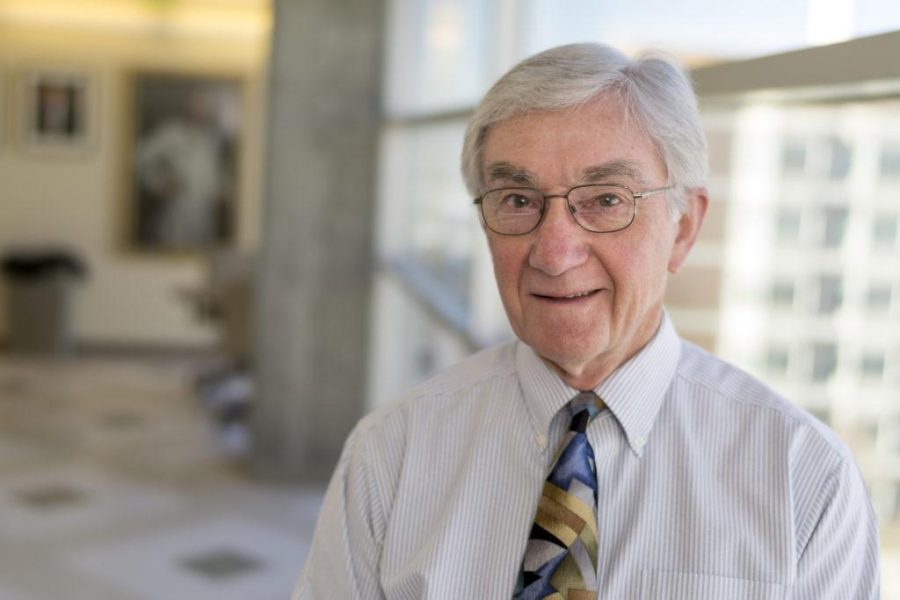When Dana Carroll received a phone call on May 2 notifying him that he had been elected to the National Academy of Sciences (NAS), he couldn’t remember exactly what he said, “but it was somewhere along the lines of ‘Holy smokes!’” The distinguished professor of biochemistry at the University of Utah is among 84 scientists elected to the NAS in 2017.
Carroll set up a lab at the U to research cellular and molecular biology in 1975. At that time, he said there was very little research in the field on campus. Over his 42 years with the department of biochemistry in the U’s school of medicine — 24 of which he served as the chair — the department has expanded, and it now has 16 labs.
“It has been fun to watch that growth happen and be a part of it,” Carroll reflected.
Most of Carroll’s work is focused on genome editing platforms. His lab is credited with the development of zinc-fingered nucleases (ZFNs), a tool that allows biochemists to target and make breaks in specific DNA sequences.
“Genome editing is a little bit like text editing,” Carroll said. “You place a cursor where you want it and make local changes in the text you’ve written. We can go in and place our cursor and make a break at one site in the DNA — exactly where we want it.”
Tools like ZFNs enable scientists to not only research specific DNA sequences, but also change those sequences. ZFNs have led to the development of TALENs and CRISPR/Cas nucleases. With this technology, biochemists can correct genes with mutations. This advancement could ultimately lead to the development of treatments for numerous diseases, and it contributes to the search for a cure to cancer.
Carroll said he is proud of his election to NAS because it shows that his colleagues respect the work he has done.
“It’s a real honor to receive validation from some of the most accomplished scientists in the world,” Carroll said.
The 2,250 members and 440 foreign associates of NAS include 200 Nobel Prize recipients. The election process begins with each candidate’s nomination. They are then extensively vetted, and they eventually are placed on a final ballot for members to vote at the academy’s annual meeting in April.
This year, Carroll was also elected to the American Academy of Arts and Sciences. In 2012, he received the Edward Novitski Prize from the Genetics Society of America, and in 2014 he was awarded the Herbert Sober Lectureship from the American Society of Biochemistry and Molecular Biology. The U gave Carroll the Distinguished Innovation and Impact Award in 2016.
e.anderson@dailyutahchronicle.com
@emilyinorgandy


